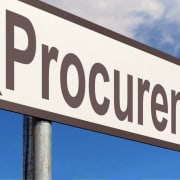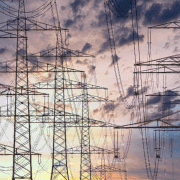|
Getting your Trinity Audio player ready...
|
Corruption Watch’s Procurement Watch (PW) tool is an invaluable resource for detailed monitoring of public procurement. By aggregating procurement data from reports submitted to National Treasury (NT) by all procuring organs of state, PW allows organisations and individuals to more easily pick up red flags relating to deviations and contract extensions in the public procurement sphere.
Launched in October 2021, PW has already yielded two reports authored by procurement law expert Prof Geo Quinot of Stellenbosch University, both of which specifically focus on trends in requests for deviations and contract expansions, as well as an analysis of restricted suppliers.
Download the Procurement Watch 2021 report (released in November 2021).
Download the Procurement Watch 2022 report (released in August 2022).
Is enough being done to restrict dodgy suppliers?
The answer is definitely not ‘yes’.
One of the worrying trends Corruption Watch (CW) picked up in both reports was a dearth of suppliers who are listed as restricted. Given the mass procurement malfeasance that took place during the state capture era and more recently, under the Covid-19 emergency regulations, is it not strange that Treasury holds so few names, relatively speaking?
There are two mechanisms in South African law for restricting suppliers from doing business with government – this process is generally referred to as debarment. These are the register of tender defaulters, and the database of restricted suppliers. The names of all bidders for government tenders must be checked against these resources before awards are made.
“There can be little doubt that public procurement has become a major site of maladministration and corruption in South Africa,” Quinot commented. “Debarment globally is viewed as one of the best mechanisms to deal with abuse of supply chain management, and it simply refers to a process through which you restrict the suppliers that can do business with the state.”
The register is created under the Prevention and Combating of Corrupt Activities Act (Precca), and comes into play after a criminal prosecution where a court will order the debarment of an entity that has been convicted of a procurement-related crime under Precca. Only when such an order has been made will the supplier’s name be entered into the register.
The database, on the other hand, is an administrative mechanism maintained by NT. No legal process is involved, and any organ of state can submit names to the database.
The two PW reports noted that the register for tender defaulters contained not one single entry, while the database of restricted suppliers does have some listings, though worryingly few when compared to the levels of tender fraud and abuse.
Furthermore, the empty register seems to have been in that situation for much longer, possibly even since its establishment in 2004. As far back as 2009, NT said that no names had been submitted because no court had ordered such submission.
NT was quick to clarify that the empty register is not its fault, as it is not responsible for submitting names for registration. Speaking to Fin24 in late 2021, NT said it cannot add names under its own initiative, but must receive those names from accounting officers at government departments, municipalities, and entities – presumably once the court has done its job – before they can be entered in the register.
Only once it has received the information from accounting officers, NT said to Fin24, can it verify that the data is correct and start adding names.
Furthermore, said NT, accounting officers are supposed to be aware of their duty as set out in a number of practice and instruction notes.
We know that of late there has been a flurry of tender-related investigations and court cases, especially in the wake of state capture and Covid-19. It seems inconceivable that with many tenderpreneurs having been found guilty of abuse and manipulation of the procurement system, not one of them has been registered in the database.
Where is the hold-up?
We asked Quinot for his thoughts on the matter.
Without any empirical evidence, he said, it was hard to give a definitive answer. However, he was inclined to attribute the situation to the fact that there simply are not many prosecutions happening under the very specific provisions in Precca.
“That doesn’t mean that there aren’t cases. It could simply be that cases involving procurement fraud or corruption may simply be brought under the general provisions of Precca as generally fraud or corruption – not procurement-specific,” he said. “In terms of Precca, it’s only when the specific crime of procurement corruption is being prosecuted, and a body is found guilty of that specific crime, that the sanction can include listing on the registry.”
This would then seem to be a failing on the part of the criminal justice system.
“One also wonders if cases are brought, to what extent then it’s asked by the prosecution that these parties be listed on the register,” said Quinot. “Again, I think this is an open question. I don’t think National Treasury’s got really any role to play in that space. This is a question of criminal prosecution – so it’s a question that one should ask of the criminal justice system, the prosecutors, and the courts.”
Now that more procurement corruption cases are coming to the fore since the release of the state capture report, he added, it might be that more listings will be made.
“It will largely depend on how these cases are actually brought before the criminal courts. And I think one should bear in mind also that the biggest action we’ve seen in response to both state capture and Covid procurement corruption has been in the SIU Special Tribunal and those cases are all civil, they’re not criminal – so there won’t be jurisdiction to list.”
It’s important to keep in mind that the tender defaulters register is not the only list in use, Quinot said – it’s just that the database of restricted suppliers is the one that’s more commonly used.
“It has the same effect,” said Quinot, “to exclude suppliers from contracting with the state and could be for the very same reason – fraud of some nature. The advantage of the database … is that you don’t have to go through the judicial process. It’s an administrative process, which is much easier. So even though it might be very strange that we don’t have anyone on this register I think that’s not the whole story.”
The few that are in the database are not nearly enough, he added – which is another discussion.
In its reports, Corruption Watch found that while the database did have 138 names on it, most municipalities or national departments had not submitted any.
“Of particular interest is the small number of entities (34) that have submitted names to this list,” the report noted, “bearing in mind that there are around 40 national departments, 103 provincial departments, 278 municipalities, nine constitutional institutions and 154 other public entities listed in schedule 3 of the PFMA – that is at least 584 entities procuring under rules that include debarment on this list (not counting subsidiaries and municipal entities).”
This suggests that the mechanism is not comprehensively used, said Quinot, and brings up yet more questions.
“If you think about abuse of our procurement system, then that list should be much longer but at least there is quite a list. And it seems that that mechanism is used much more extensively to deal with this particular issue,” he said. “My sense also is that that’s probably just an easier way of doing it than having to rely on a whole judicial process. So perhaps one shouldn’t be too concerned about the fact that the register is empty, as long as the database is being used more effectively.”
In that case, we asked, why are there two mechanisms in the first place?
“I cannot really can’t think of any good reason why one should have two,” Quinot said. “I can easily see how one could align these very different processes, an administrative process of barring a supplier and a judicial process on the other hand, into a single instrument … there could be a complete duplication and what makes it even more troubling is that because these two instruments aren’t linked, they can be duplication for the same contravention of procurement rules, but for different periods of time, because different entities get to decide the period of time between the two instruments.”
The database predates the register, he added, which could indicate the matter was not thoroughly considered, without sufficient attention to the existing mechanism.








